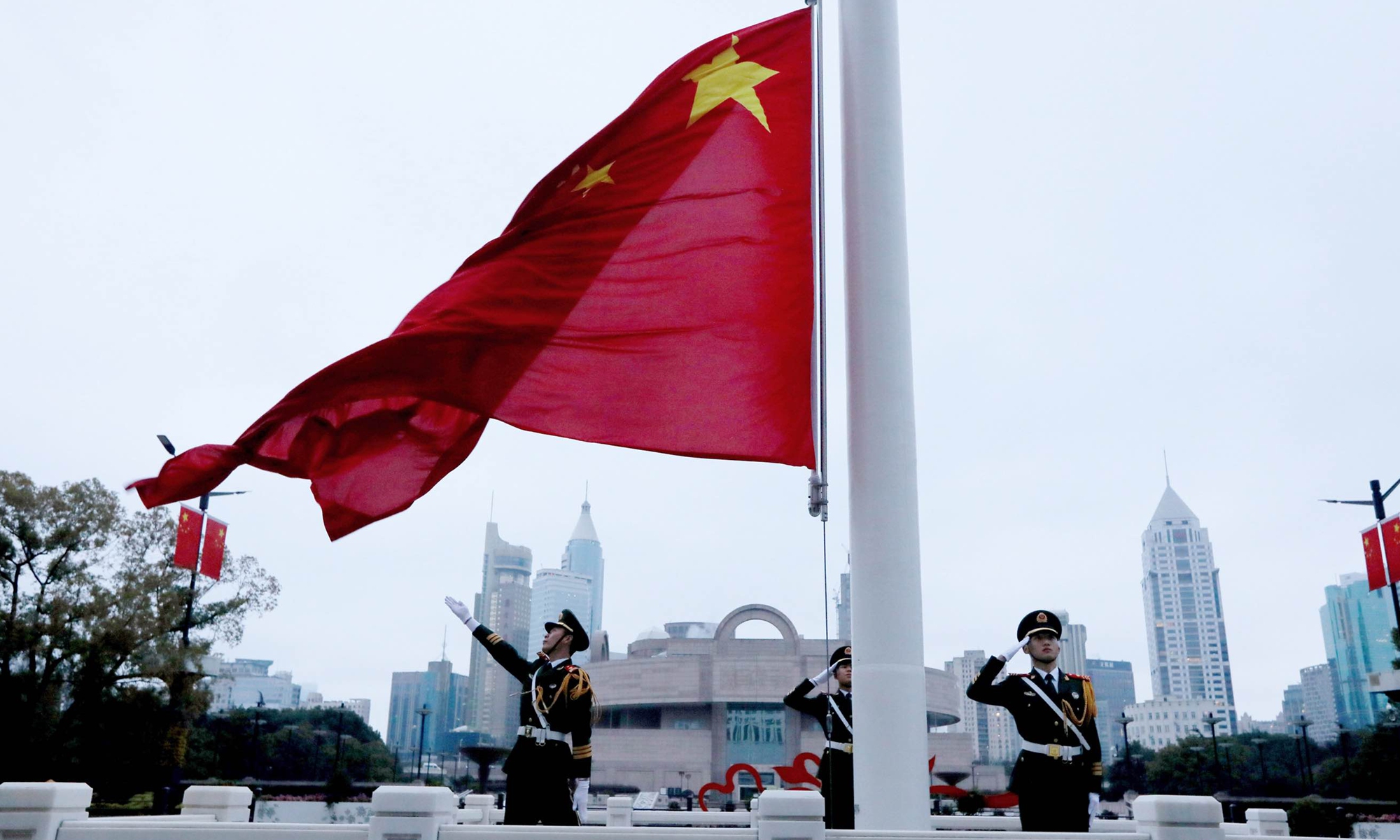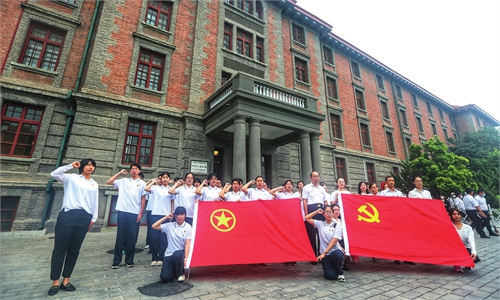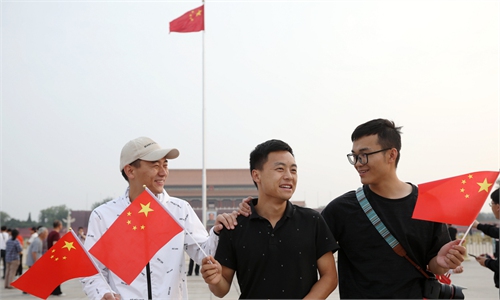Upholding unity of loving China, the CPC vital for patriotism to be lively, genuine: top legislature

Soldiers from the People's Armed Police Force unit raise the Chinese national flag at People's Square in Shanghai on February 24, 2023. Photo: Chen Xia/GT
Only by upholding the unity of loving the country, the Communist Party of China (CPC), and socialism, can patriotism be lively and genuine, China's top legislature's legislative affairs commission spokesperson said in explaining the recently-passed Patriotic Education Law.
Chinese lawmakers on Tuesday voted to adopt the law that is aimed at promoting the spirit of patriotism in the country. It will take effect on January 1, 2024.
The enactment of the law aims to promote and guarantee patriotic education in the new era through the rule of law, which has far-reaching significance for inheriting and carrying forward the national spirit, pooling the strength of the people, and promoting the building of a strong country and the rejuvenation of the nation, the spokesperson said in an interview published on the website of the National People's Congress on Thursday.
Patriotism is closely tied to a nation's cultural traditions, historical development, and fundamental national conditions. The CPC is the staunchest advocate and practitioner of the spirit of patriotism, the spokesperson noted.
China's patriotism has always revolved around achieving prosperity for the people and strength for the nation, ultimately converging into the great cause of socialism with Chinese characteristics led by the CPC, which aims at seeking happiness for the people and rejuvenation for the nation.
Only by upholding the unity of loving the country, the Party, and socialism, can patriotism be lively and genuine. The legislation on patriotic education adheres to this unity, embodying the fundamental political attributes and direction of contemporary Chinese patriotism.
Through patriotic education, we must guide people to deeply understand the trinity of loving the country, the Party, and socialism, and organically integrate them into the great practice of walking the path of socialism with Chinese characteristics under the leadership of the CPC, according to the spokesperson.
This can be achieved by highlighting the great achievements made under the leadership of the Party and the advantages of the socialist system with Chinese characteristics.
According to the law, patriotic education covers areas such as ideology and politics, history and culture, national symbols, the beauty of the motherland, national unity and ethnic solidarity, national security and defense, and the deeds of heroes and role models.
The law highlights patriotic education for youngsters and children, and makes stipulations regarding patriotic education for various groups of people, such as employees of government departments, enterprises and public institutions, residents of urban and rural areas, as well as compatriots from Hong Kong, Macao and Taiwan, and overseas Chinese.
Patriotic education needs to be closely integrated with national defense and national security education, the spokesperson said.
The Constitution stipulates that citizens have the duty to uphold national unity and the solidarity of all ethnic groups, as well as to safeguard the motherland's security, honor, and interests. Patriotic education and national defense and national security education share the same goals and support each other, the spokesperson added.
The Patriotic Education Law clearly states that patriotic education should focus on maintaining national unity and ethnic solidarity, which should incorporate awareness and concepts related to national unity, ethnic solidarity, national security, and national defense as major components of patriotic education.
The content of the law set forth targets provisions for different groups including compatriots from Hong Kong, Macao and Taiwan as well as overseas compatriots, and a patriotic education working group just set up by the Hong Kong Special Administration Region government will coordinate government departments and non-governmental organizations to promote national education, Starry Lee Wai-king, a Hong Kong member of the Standing Committee of the NPC, said in a statement sent to the Global Times on Thursday.
"I believe it will better coordinate different departments to jointly enforce patriotic education," she said.



